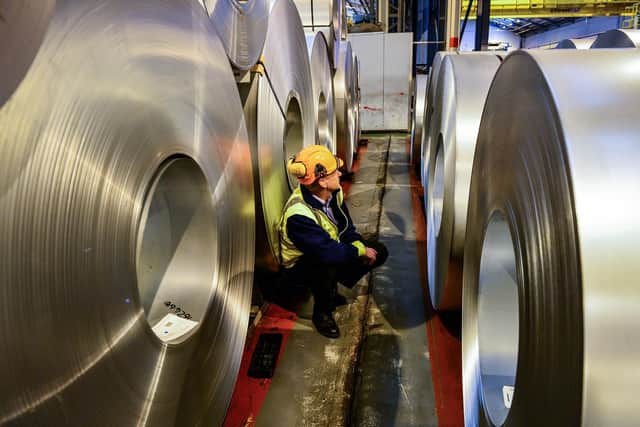Yorkshire salary levels rise ahead of national average
New data released today by REED from analysis of over 6.5 million jobs posted on its website over the last three years, found that Covid-19 had not had a negative impact on overall salary levels in Yorkshire and Humberside.
In fact, the average advertised salary in the region in 2020 increased by 2.95%, against a UK average of 2.32%. This is in the face of slow inflation, with the Consumer Price Index (CPI) 12-month rate falling to just 0.3% in November 2020, from 0.7% in October 2020, and the Office for Budget Responsibility predicting it to stay below 2% until 2025.
Advertisement
Hide AdAdvertisement
Hide AdDespite being one of the hardest hit regions economically by the pandemic, Yorkshire still saw an increase above the UK average. Northern Ireland saw the lowest increase with 1.13%, while the largest increases included North East (7.95%), followed by Wales (6.4%) and the South West (5.32%).


Several sectors in Yorkshire and Humberside experienced salary increases that significantly outperformed the UK average. The hospitality and leisure sector saw the biggest salary increase, 10.6% against the UK average of just 4%.
Sales and business support sectors also posted above UK levels of salary growth. There was a 9.6% salary growth in Yorkshire and Humberside for sales, above the 6.4% UK average, and a 5.6% increase for the engineering sector – above the UK average of 3.9%.
Not surprisingly, these sectors also saw the highest increases in salaries for specific job roles. Jobs with the highest salary increase in the region include business support account manager with a 9.7% increase, bar manager with a 9.6% increase, demand / supply / materials manager with a 9.4% increase and sales executive with a 9.3% increase.
Advertisement
Hide AdAdvertisement
Hide AdYet, some of the hardest hit sectors in the region performed below the UK average, including HR, which increased by only 0.7% against the UK average of 1.9% increase.


Mike Harrison, Regional Managing Director for REED in Yorkshire and Humberside, said: “Like many other parts of the country, Yorkshire and Humberside has been devastated by the impact of Covid-19. Before the pandemic it was in a state of transition from an economy heavily weighted towards manufacturing to one that is diversifying. Its finance, insurance, transport and public administration sectors have been highly productive in recent years and people being employed in these roles, that can be performed remotely, will have helped the economy continue to move.
“This diversification has resulted in overall salaries growing at well above the UK average rate and some narrowing of the north / south pay gap. In fact, this growth has largely been driven by significant salary increases in the accountancy and finance, business support and sales sectors, which shows the vital contribution they make to the regional economy.
“The significant average salary growth, seen in Yorkshire and Humberside, shows the adaptability and resilience of businesses in the region and puts the local economy in a good position for a recovery in 2021. The positive news about vaccines has already given businesses more confidence about hiring and we are seeing this reflected in an increase in the number of job vacancies being posted.
Advertisement
Hide AdAdvertisement
Hide Ad“While there may be a surplus of talent available now, due to higher than usual unemployment levels, this won’t last long and when we leave this recession behind, there will be fierce competition for skilled people. Our salary guides will help employers to understand the impact that both Covid-19 and Brexit are having on salary levels in the region. This will enable them to compete effectively – not only to recruit new talent but also to retain the valuable employees they already have.”